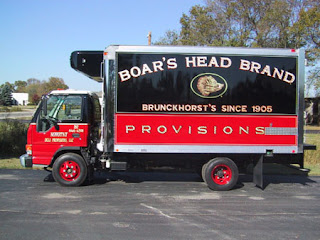Unemployment
Carnage continues: 524,000 jobs lost in December
Unemployment rate rises to 7.2%, the highest level in 16 years
Okay, so we turn on the news, and all we see is negative reminders of how our economy is going, and I post this, apologies, ha. I hope it inspires you to get motivated/creative if you're searching, as well as appreciate the job you currently have!
WASHINGTON (MarketWatch) -- The U.S. economy lost 524,000 jobs in December, closing out the worst year of job losses since World War II, the Labor Department said Friday.
Nearly 2.6 million jobs were lost in 2008, with 1.9 million destroyed in just the past four months, according to a survey of workplaces. It's the biggest job loss in any calendar year since 1945, when 2.75 million jobs were lost as the wartime economy was demobilized.
The 1.5 million jobs lost in the fourth quarter were the most in any three-month period since 1945.
As a percentage of employment, job losses in 2008 totaled 1.8%, the worst since 1982 and the third-largest since the war.
Video: California's job market outlook
California's unemployment rate is among the highest in the nation, and the state's budget crisis is likely to prolong the problem unless "green" technology comes to the rescue. Stacey Delo reports. (Jan. 8)
In 2008, the unemployment rate rose by 2.3 percentage points and unemployment increased by 3.6 million. Another 3.4 million workers were forced into part-time work during the year.
"Both the U.S. economy and job market fell off a cliff in September," said Nariman Behravesh, chief economist for IHS Global Insight, who said the unemployment rate would rise to at least 9% by early 2010.
"The speed and the breadth of the deterioration in the U.S. economy since September are staggering," wrote Richard Moody, chief economist for Mission Residential.
The grim report will increase pressure on Congress to quickly pass a major fiscal stimulus package to prop up the economy. President-elect Barack Obama has suggested the government inject as much as $800 billion into the economy over the next two years. The report "underscores the need for us to move forward with a sense of urgency and common purpose" to prevent the dire economic downturn from getting even worse, Obama said.
"It is now beyond rational debate that we need a significant infusion of public funds to work with the private sector so that we can restore economic growth," said Rep. Barney Frank, D-Mass., chairman of the House Financial Services Committee.
"America cannot buy its way to prosperity with more and more government spending," said House Republican Leader John Boehner of Ohio, who urged Obama and the Democrats to make tax cuts a central part of any plan.
"Even with passage of a large fiscal stimulus package, labor market conditions will continue to deteriorate through 2009," Moody said.
The report was worse than expected, with payrolls in October and November revised lower by a total of 154,000 jobs. November's loss was revised to 584,000, the highest in 24 years.
Economists surveyed by MarketWatch expected payrolls to fall by 500,000 and the unemployment rate to rise to 7.1%. See Economic Calendar.
"Overall, a terrible report," concluded Ian Shepherdson, chief U.S. economist for High Frequency Economics. "The only possible glimmer of light is that the maximum rate of fall of payrolls is hopefully not far off."
Details of the report
Total hours worked in the economy fell 1.1%, with the average workweek falling to the shortest ever, signaling an annualized decline of 6% in gross domestic product in the fourth quarter, wrote John Silvia, chief economist for Wachovia. Hours worked have declined "at an eye-watering" 7.7% annual pace in the quarter, Shepherdson said.
The number of people working part-time because of the slowing economy rose by 715,000 in December to 8.04 million.
An alternative measure of unemployment that includes workers too discouraged to look for a job rose to 13.5% from 12.6% in November; it's the highest in the 13 years since those data have been kept.
Job losses were widespread. Only 25% of 274 industries were hiring in December, the lowest in the 18-year of that data.
Goods-producing industries cut 251,000 jobs in December, including 149,000 in manufacturing. The factory workweek plunged below 40 hours to a record low 39.9 hours, and average overtime fell to just 3 hours. Of 84 manufacturing industries, just 11% were hiring.
Manufacturing employment fell below 13 million for the first time since 1942.
Services-producing industries cut 273,000 jobs in December, including 67,000 in retail trade and 113,000 in business services. Temporary-help jobs fell by 81,000. Health-care industries added 32,000 workers.
Average hourly earnings increased by 5 cents, or 0.3%, to $18.36 an hour. Hourly pay rose 3.7% in 2008, outpacing the 0.6% increase in the consumer price index through November. 
Rex Nutting is Washington bureau chief of MarketWatch.


Comments